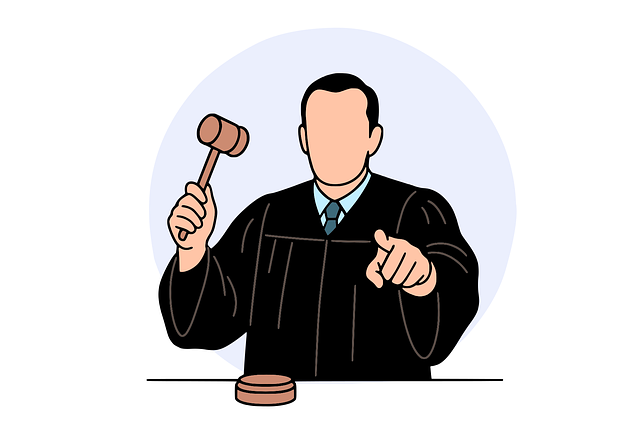Uncovering Expertise: What Sets Top-Rated Defective Drug Attorneys Apart

Choosing a top-rated defective drug attorney is key for securing justice in cases of medication-rela…….
In the intricate world of pharmaceutical litigation, the role of a defective drug attorney is pivotal in safeguarding public health and ensuring accountability. This article delves into the multifaceted nature of defective drug law, exploring its historical roots, global impact, economic implications, technological innovations, regulatory frameworks, challenges, and the transformative case studies that define this specialized legal practice area. By examining these aspects, we aim to provide a comprehensive understanding of how defective drug attorneys contribute to a safer pharmaceutical landscape.
Definition:
A defective drug attorney is a legal professional specializing in representing individuals or groups harmed by pharmaceuticals that prove unsafe after marketing. They navigate complex legal systems to hold manufacturers, distributors, and healthcare providers accountable for the adverse effects of drugs.
Core Components:
Historical Context:
The concept of defective drug litigation emerged in the mid-20th century as a response to growing public concern over the safety of prescription medications. Landmark cases, such as the 1962 FDA Amendment, which required drug makers to prove product safety, laid the groundwork for modern defective drug law. Over time, these legal principles have evolved to address complex issues related to drug development and marketing.
Significance:
Defective drug attorneys play a crucial role in:
International Influence:
Defective drug litigation is a global phenomenon, with variations in legal systems impacting how these cases are pursued and resolved. Common trends emerge, however, across different regions:
| Region | Key Trends | Notable Cases |
|---|---|---|
| North America | Strict liability for defective drugs, robust class-action lawsuits | Roderick v. Merck & Co. (2010) – A successful lawsuit against Merck for the painkiller Vioxx. |
| Europe | Focus on negligence and strict liability, stronger patient advocacy groups | Johnson & Johnson v. Health and Consumer Protection Authority (2018) – A Belgian court case involving baby powder and asbestos claims. |
| Asia-Pacific | Balancing public health interests with pharmaceutical industry growth | GlaxoSmithKline v. National Health Authority (2022) – A dispute in India regarding drug pricing and safety regulations. |
| Middle East | Increasing awareness of patient rights, government interventions for drug safety | Unnamed case against a major pharmaceutical company (2019) – Settled out of court due to allegations of misleading marketing. |
Trends Shaping the Future:
Market Dynamics:
The pharmaceutical industry is a multi-billion-dollar global market, with defective drug litigation impacting its financial landscape:
Investment Patterns:
Economic System Implications:
Defective drug attorneys contribute to:
Innovation in Drug Development:
Technological breakthroughs in drug development have led to more complex litigation challenges:
Legal Tech Applications:
Technology also aids defective drug attorneys:
Future Potential:
International Regulations:
Domestic Legislation:
Each country or region has its own legal framework:
Influencing Defective Drug Law:
These policies shape:
Main Challenges:
Criticisms and Strategies:
Case Study 1: Vioxx (Rofecoxib) – A Lesson in Delayed Action
Roderick v. Merck & Co. (2010): A successful lawsuit against Merck for the painkiller Vioxx, which was linked to an increased risk of cardiovascular events. The case highlighted:
Case Study 2: Talc Powder – A Global Health Concern
Johnson & Johnson v. Health and Consumer Protection Authority (2018): A Belgian court case involving baby powder contaminated with asbestos, leading to numerous cancer cases. This case:
Case Study 3: Transvaginal Mesh – A Women’s Health Crisis
In re: Ethicon, Inc. Pelvic Mesh Cases (2015): A multi-district litigation against Johnson & Johnson’s Ethicon for transvaginal mesh devices linked to severe complications. Key takeaways:
Growth Areas:
Emerging Trends:
Strategic Considerations:
The landscape of defective drug law is a dynamic and critical aspect of ensuring patient safety in the pharmaceutical industry. From historical roots to modern-day challenges, attorneys specializing in this field have evolved their practices to meet the demands of a globalized market. By balancing public health interests with corporate responsibilities, these lawyers contribute significantly to:
As technology advances and global health concerns evolve, the role of defective drug attorneys will remain indispensable in shaping a safer pharmaceutical ecosystem. Continuous learning, strategic adaptation, and collaboration are key to navigating this complex and ever-changing legal domain.
Q1: How do I know if I have a valid case for a defective drug injury?
A: If you or a loved one has suffered an injury or adverse health effect after taking a medication, consult a defective drug attorney. They will assess your case based on medical records, side effect reports, and legal precedents to determine liability.
Q2: What is the statute of limitations for filing a defective drug lawsuit?
A: The time limit varies by jurisdiction but typically ranges from 1 to 3 years from the date of injury or discovery of harm. Act promptly to preserve your legal rights.
Q3: Can I afford a defective drug attorney, and what are the costs involved?
A: Legal fees can vary, but many attorneys work on a contingency basis, meaning they only charge if they win your case. Initial consultations are often free, and you will not be charged unless your case is successful.
Q4: How do global laws affect my defective drug lawsuit if I’m from a different country?
A: International defective drug cases can be complex due to varying legal systems. A specialized attorney with cross-border experience is crucial. They will guide you through the process, ensuring compliance with local regulations and jurisdiction requirements.
Q5: What role does public health play in defective drug litigation?
A: Defective drug attorneys often work to protect public health by advocating for stronger drug safety regulations, improved reporting standards, and better patient monitoring. Their efforts contribute to a safer pharmaceutical market for everyone.

Choosing a top-rated defective drug attorney is key for securing justice in cases of medication-rela…….

When harmed by defective drugs, turn to a defective drug attorney for crucial legal guidance. These…….

Medical malpractice and product liability law are distinct yet crucial areas, both focusing on holdi…….

Defective drug attorneys specialize in complex legal issues surrounding unsafe pharmaceutical produc…….

Medical malpractice due to healthcare provider errors, such as misdiagnosis or prescription mistakes…….

Individuals harmed by defective pharmaceuticals turn to defective drug attorneys for justice. These…….

A defective drug attorney specializes in protecting patients harmed by unsafe medications. They leve…….

In cases of defective drugs, individuals affected have legal rights and need a defective drug attorn…….

For a successful defective drug case, meticulous recording and compiling of detailed medical records…….

The FDA recall process is a critical defense mechanism against unsafe drugs, with manufacturers lega…….